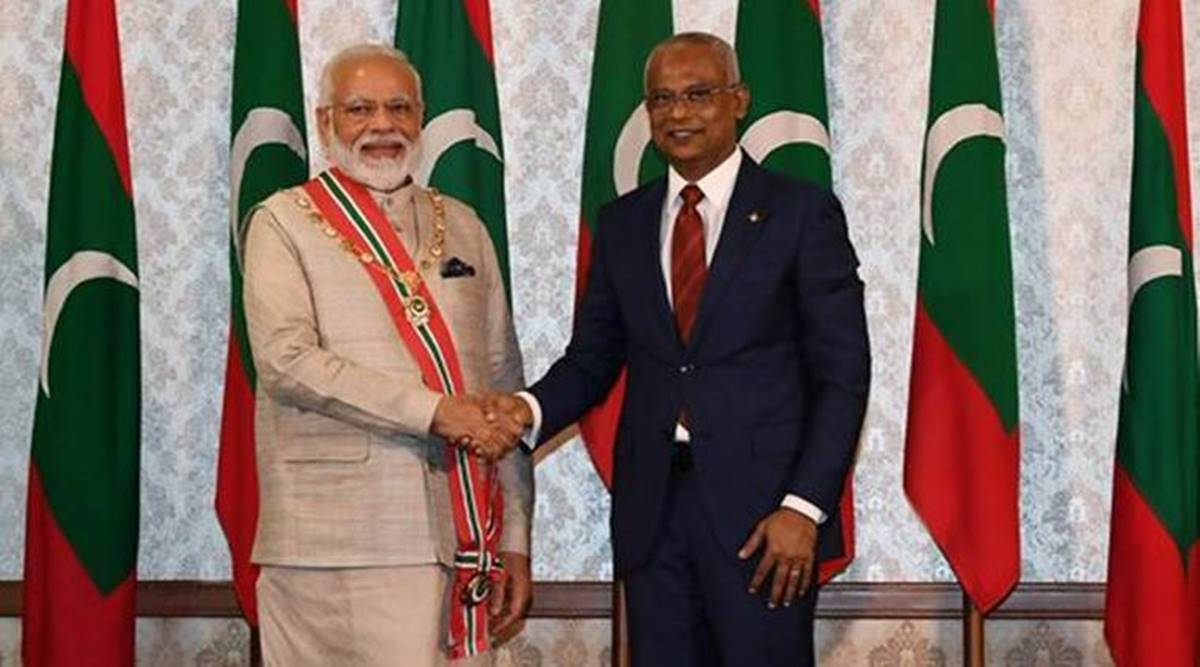![]() By: Shree1news, 26 AUG 2021
By: Shree1news, 26 AUG 2021
The Greater Male Connectivity Project, will involve the construction of a 6.74 km long bridge and causeway link connecting the capital Male with the adjoining islands of Villingli, Gulhifalhu and Thilafushi.
India and Maldives on Thursday will sign a contract on the mega Greater Male Connectivity project (GMCP), the largest infrastructure project in the nation.
The project, funded by an Indian grant of $100 m and a Line of Credit of $400 m is also the biggest new development project by India in its neighbourhood in recent years. The project, the largest in the Indian Ocean atoll nation, will start with the signing of the contract between the Maldives government and Indian infrastructure company AFCONS in Male.
Called the Greater Male Connectivity Project, it’ll involve the construction of a 6.74 km long bridge and causeway link connecting the capital Male with the adjoining islands of Villingli, Gulhifalhu and Thilafushi.
Earlier than this, the largest connectivity project in the Maldives was the 1.4 km Chinese-funded bridge connecting Male to the Maldives airport in Hulhule island, and to the Hulumalhe island.
Discussions on the GMCP were initiated throughout the visit of External Affairs Minister S Jaisankar to Male in September 2019.
A planned new airport at Gulhifalu under an Indian Line of Credit, and the fact that Thilafushi is where the Maldives industrial zone is located, will make the GMCP and “economic lifeline”, officials mentioned.
The scheme consists of three navigation bridges of 140 m main span across the deep channel between each island, 1.41 km of marine viaduct in deep water, 2.32 km marine viaduct in shallow water or on land, and 2.96 km of at-grade roads. The land interchanges at Male’ and Villingili will be signalised junctions, while there will be roundabouts at Gulhifalhu and Thilafushi. Bus terminals are planned on each island near the junctions with the mainline.
The scheme is composed of three navigation bridges of 140 m main span across the deep channel between each island, 1.41 km of marine viaduct in deep water, 2.32 km marine viaduct in shallow water or on land, and 2.96 km of at-grade roads.
Such a project would have been impossible before 2018 when the Maldives had a pronounced pro-China tilt to its foreign policy under the Abdulla Yameen presidency. President Ibrahim Mohammed Solih brought about a change after taking after winning the presidential election in 2018.
However, anti-India sentiments have not disappeared. in recent months, there has been a media backlash against India, including an #IndiaOut campaign in social media posts critical of the Maldivian government’s friendly relations with Delhi.
Security was stepped up at the Indian High Commission in Male after the Indian High Commissioner Sunjay Sudhir dashed off a note verbale to the Maldivian government, describing the attacks in the media as “motivated, malicious, and increasingly personal” noting that “such repeated attacks can affect the efficient performance of the functions of the High Commission and can damage the time-tested and mutually beneficial bilateral relations”.







 Finance
Finance






